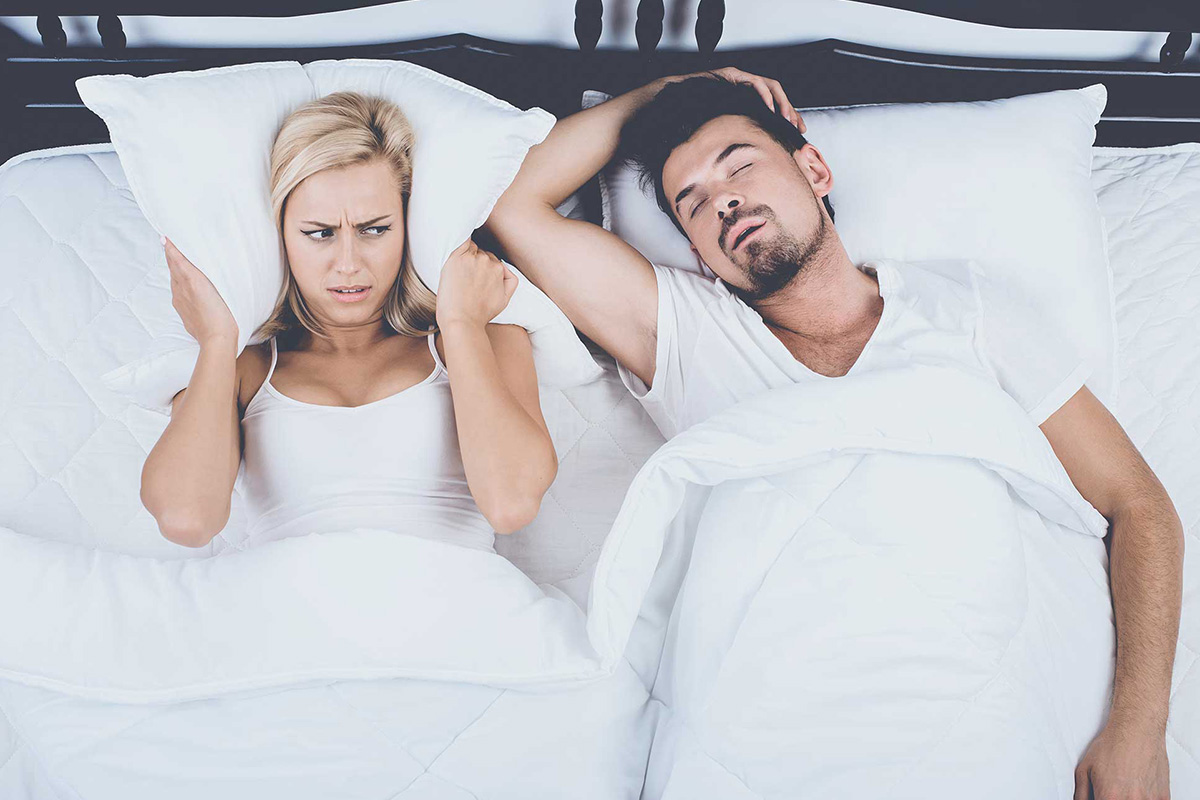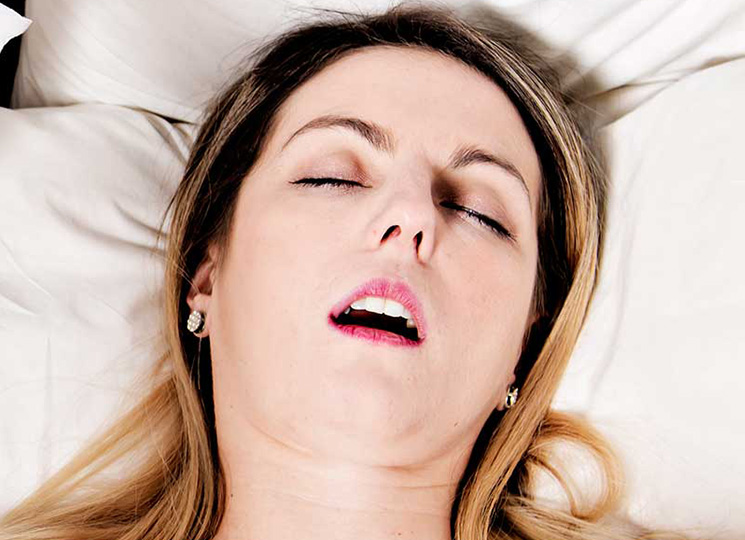Snoring
You tried special pillows, mouth guards, and even those t-shirts with the pockets for tennis balls on the back. Sometimes they work; sometimes they don’t. The bottom line is, you’ve tried over-the-counter remedies and you didn’t get the results you were hoping for.

What Causes Snoring?
Occasional snoring can be brought on by unusual fatigue, by a cold, seasonal allergies, or excessive alcohol. Occasional snoring will pass when the reason behind it passes. But, for the 25 percent of people deemed habitual snorers, there may be underlying health problems or sleep disorders that are causing their problem.
Common causes of habitual snoring include:
- Anatomy
The structure of your mouth and nasal pathways have a lot to do with snoring. People with a low or thick palate are more likely to snore because this tissue vibrates with breathing during sleep. An elongated palate and uvula can also narrow the airway and cause excessive snoring.
- Nasal Obstruction
Anything that narrows the nasal passages increases the chances that someone will snore. These can include nasal polyps or a deviated septum. Allergies can also play a role since they can lead to the swelling of nasal tissues and can also be a contributing factor in the formation of polyps.
- Sleep Apnea
Sometimes called obstructive sleep apnea, this serious problem results in the complete blockage of the airways for brief periods of time. People with sleep apnea will often wake briefly — sometimes hundreds of times a night — to gasp for air. This can cause a fitful, restless sleep. The symptoms of sleep apnea can extend into the daytime hours and include sleepiness, headache, and the inability to stay awake while driving.

What Should I Do to Stop Snoring?
Want to stop snoring? Stop looking for a quick remedy. Get evaluated to see whether you need CPAP equipment, surgery, or another snoring treatment. Speak to your Family Healthcare Professional for a referral.
